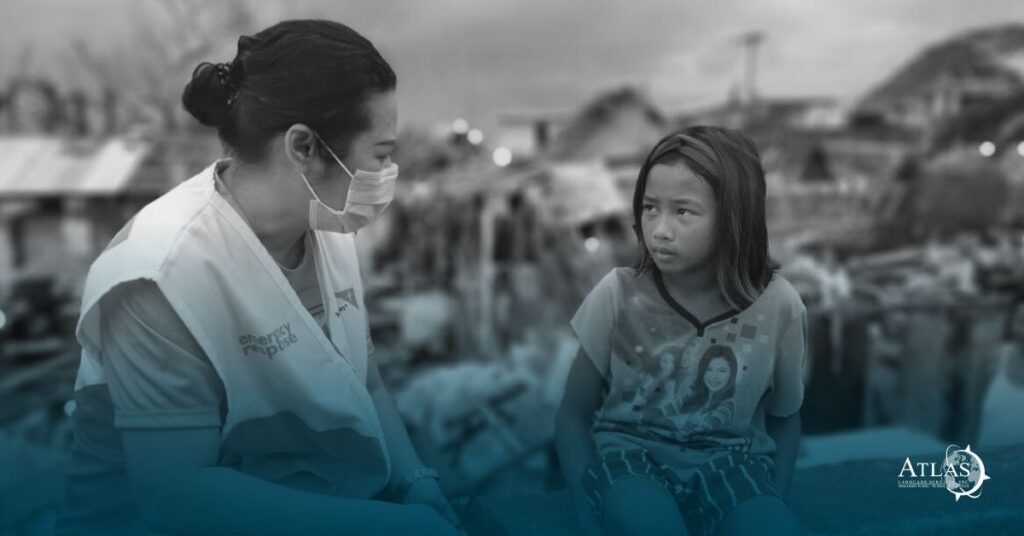In times of humanitarian crisis and disaster, effective communication is crucial for coordinating aid efforts and ensuring the safety and well-being of those affected.
Interpreters play a vital cultural role during these situations, and they’re now considered essential workers for most NGOs and governmental organizations.
But the role goes beyond just translating.
Interpreters: Essential Workers in Humanitarian Aid and Disaster Relief
Following a crisis, one of the most immediate priorities for relief workers and victims is disseminating and receiving information.
However, language differences can make this process difficult during response and recovery.
That’s when language services play a vital role in facilitating communication in these situations.
The lack of language workers during these emergencies was notable in humanistic crises such as the Haiti earthquake in 2010, the Japanese earthquake, and the tsunami in 2011, when NGOs and frontline aid workers realized they were unprepared and unable to communicate in the primary languages of the affected populations.
Interpreting services are needed to bridge the language barrier between aid workers and local communities.
This can include interpreting for medical personnel in providing healthcare, for emergency responders in evacuation and rescue operations, or for aid workers in distributing resources and information.
Also, translating vital documents such as emergency instructions, medical information, and aid information into the languages spoken by affected communities ensures that everyone can access critical data and make informed decisions.
Interpreters and translators also play a vital role in building trust and understanding between aid workers and local communities.
By ensuring that communication is accurate and respectful, language services can mitigate potential cultural misunderstandings and ensure that aid efforts are effective and well-received.
Right now, many organizations require language workers who are prepared to face these situations and advocates to help people.
We encourage all our colleagues to take action and help those who need it the most.

FAQs
Why are interpreters considered essential workers in humanitarian aid and disaster relief?
Interpreters facilitate critical communication between aid workers and affected communities during crises. They help bridge language barriers, ensuring that vital information, such as medical care, rescue operations, and resource distribution, is accurately conveyed.
What roles do interpreters play during disaster relief efforts?
Interpreters assist in various areas, including healthcare, evacuation, and rescue operations. They help translate crucial documents like medical instructions and emergency procedures, ensuring that affected populations have access to essential information in their native languages.
How do interpreters help build trust in disaster-stricken communities?
By ensuring clear, accurate, and culturally respectful communication, interpreters help build trust between aid workers and local populations. This trust ensures that relief efforts are more effective and that communities are more receptive to aid.
What challenges have been faced due to a lack of language services during past crises?
Crises like the Haiti earthquake in 2010 and the Japanese earthquake and tsunami in 2011 revealed the critical need for language services. Aid workers struggled to communicate with affected populations, highlighting the importance of having trained interpreters and translators ready for emergency situations.

